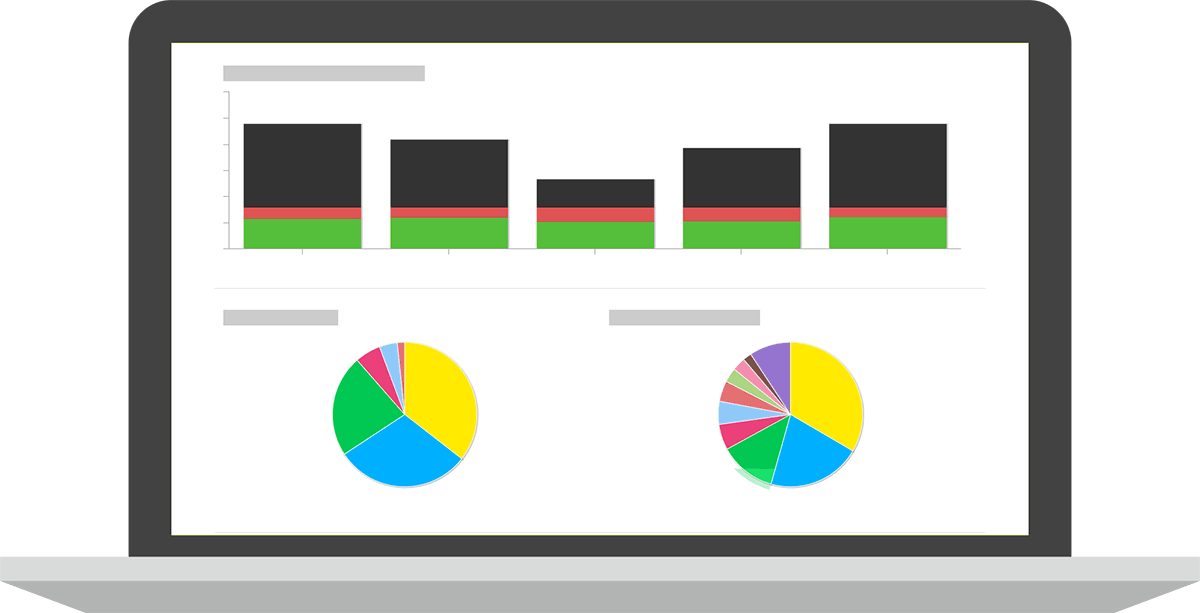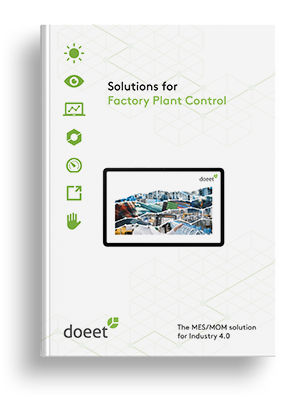MES system for factory plant control
An advanced MES system and its factory plant control solutions allow you to manage all your production processes.
The doeet MES system allows real-time monitoring of production status while measuring factory plant productivity and overall efficiency.
This system is oriented to the manufacturing execution and works with the information collected in the factory plant automatically and in real-time, including manual work and all the tasks not associated with the machine through the doeet HMIs.
This tool allows you to know at any time the status of manufacturing orders, their life cycle, partial closures, raw material consumption, quality controls carried out on the product being manufactured, etc.
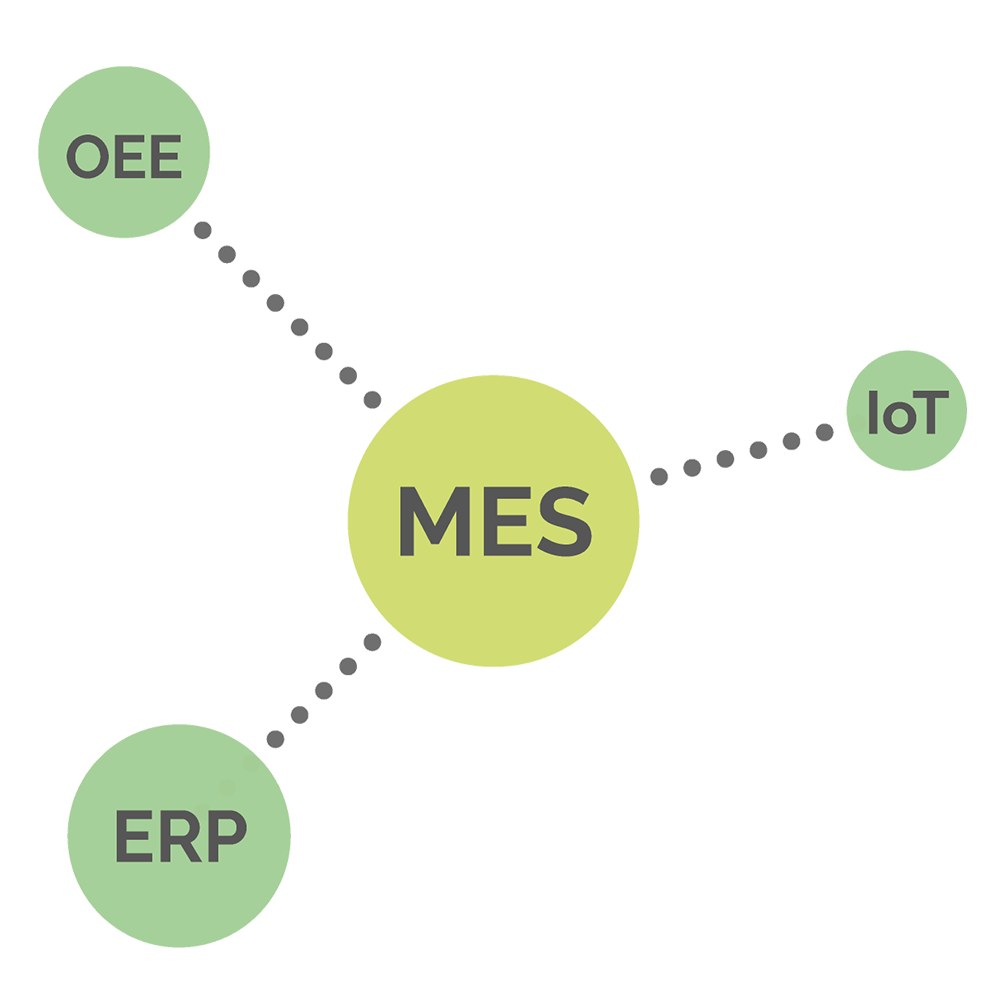
MES system with in-plant data capture
Connect with your machines



The MES doeet system obtains all the information from the machines, accessing its automatons, which allows digitalizing the entire production process. We have different communication protocols to achieve this link and extract data from the machines in real-time. We incorporate external sensors or controllers, which centralize the information in PLC cards.
Quality Controls and Checklist
MES system helps reduce scrap and defective units
An advanced Quality Control system such as doeet allows the creation of customized checklists for each work centre or reference performed in the factory plant during the shift. doeet records the checks performed, sorted by time, operator or machine, to ensure traceability.
doeet measures and identifies the causes of scrap, i.e. defective products or invalid raw materials, and issues warnings for out-of-range measurements.
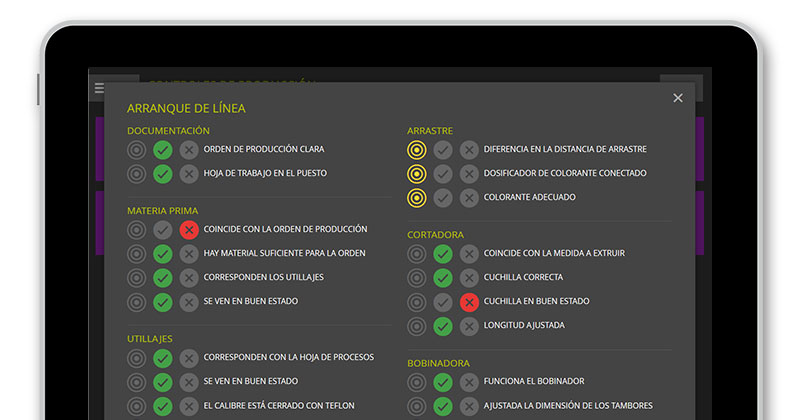
Manufacturing parameters
Weight, pressure, temperature, environmental sensors…
The doeet MES system automatically captures and records manufacturing variables and parameters directly from the machines, as well as from auxiliary systems such as scales, temperature or flow meters, artificial vision systems, etc…
All Manufacturing Parameters are associated with other events in their reading: production order, shift, reference or raw material batches. The inverse analysis allows knowing if the machine parameters were correct during the production of a specific order or if any variable was out of range and has caused the production of defective units.
Visual factory with customizable panels
Improve your processes with information
The doeet Visual Factory module allows the generation of large format projections and screens with data on the manufacturing status, to be visualized by all the personnel in the factory plant.
Displays show machines running or stopped, the status of production orders or the overall efficiency of the equipment.
Create customized dashboards with the production data you need, automatically updated and focused not only on displaying relevant information but also on improving operability.
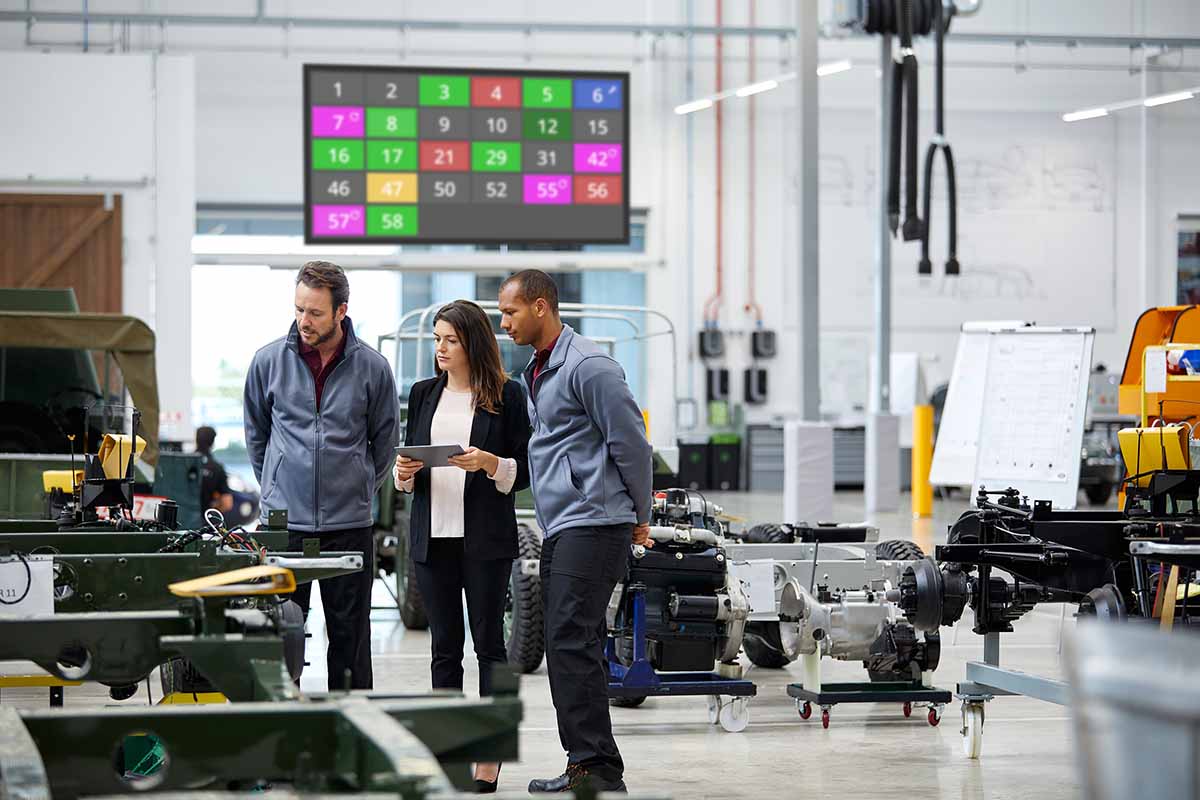
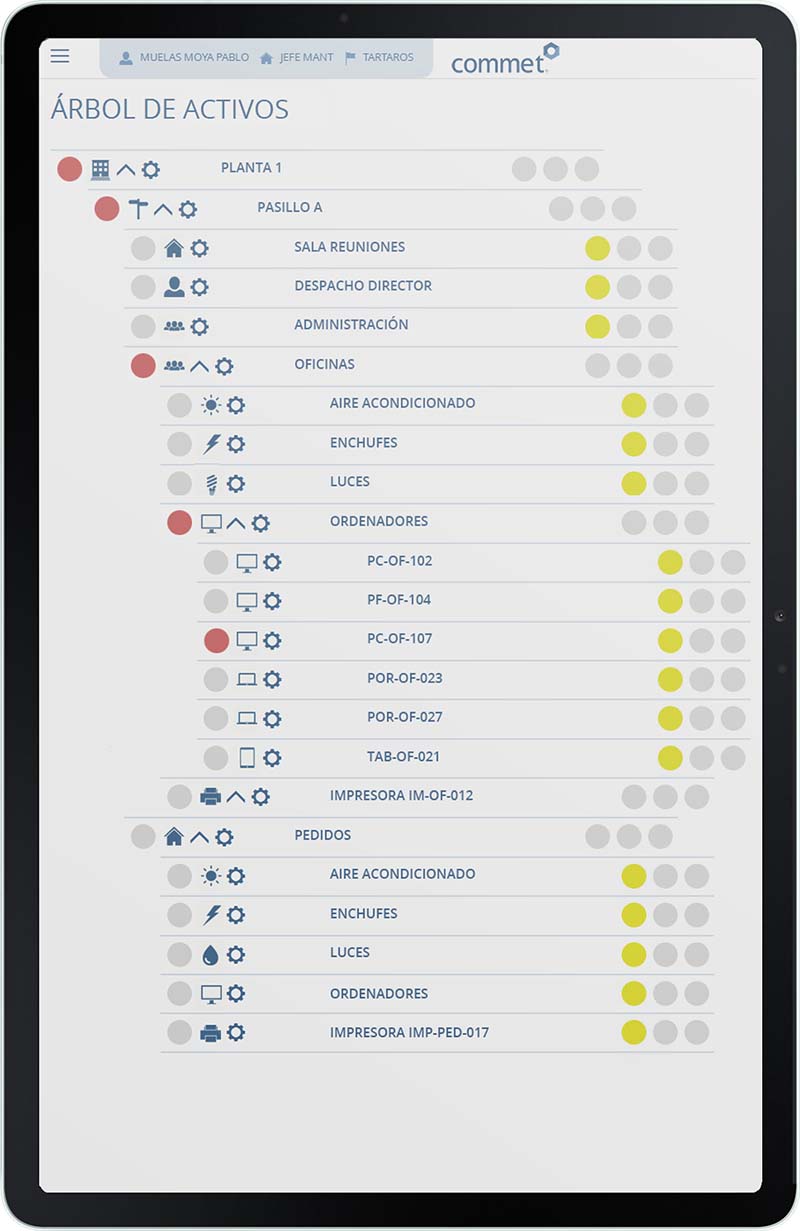
Machine tree view
Schedule your preventive maintenance
Respond quickly in the event of a breakdown
Manage and plan the CMMS Maintenance of your factory and avoid shutdowns due to breakdowns, lack of maintenance or spare parts. Analyze in depth all the key factors of your maintenance, such as the hours spent, personnel and spare parts costs, or the number of orders executed per type of maintenance or per machine.
Create the necessary preventive maintenance programs for all your machines and installations simply and efficiently. Open a corrective work order in just a few clicks when a critical failure occurs on your machines.
Warehouse and stock management controls the quantity, status and location of all spare parts and materials required for your maintenance.
MES system with operator control
doeet controls at all times the shifts, operators and managers assigned to each production line at any given moment. But during production, there is a multitude of tasks that are performed manually, because there is no automated process for them. Productivity control in these cases is essential.
By controlling operators in external operations, we have a complete view of the human resources used in each workstation or work cell, as well as their productivity. We can identify the number of operators who have been working at each workstation, the hours spent and, if any, the associated machine stoppages. We also compare the time an operator performs his task with the time he theoretically should have spent.
Automatically justify shutdowns with an Auto-Stop system
Create your auto-stops system to automatically justify machine stops by indicating their causes. The Auto-Stops doeet module allows setting a series of conditions so that the machine’s alarms automatically justify a machine stop.
Configure your shutdown system and indicate the shutdown lockout times. The system will detect and display the cause on the terminal, self-justifying the shutdown.
Activate the alarms if you want the operator to be alerted every time a shutdown is automatically registered.
Doeet solutions for Factory Plant Control
Processes Control
The final frontier of a MES system
A MES system improves product quality and customer service by enabling a rapid response to unforeseen events and incidents by providing real-time, objective and intuitive information. To implement an MES system in a company, it is necessary to carry out a prior analysis of the production model to detect strengths and weaknesses and establish an appropriate improvement strategy.
Controlling the process and recording every incident or event associated with a manufacturing order is the main function of these systems. Once all the data has been collected, the MES doeet system structures and plots the captured information, allowing the production and plant status to be assessed and analyzed at any time.
Document Management
Allow access to the necessary documentation. Or not.
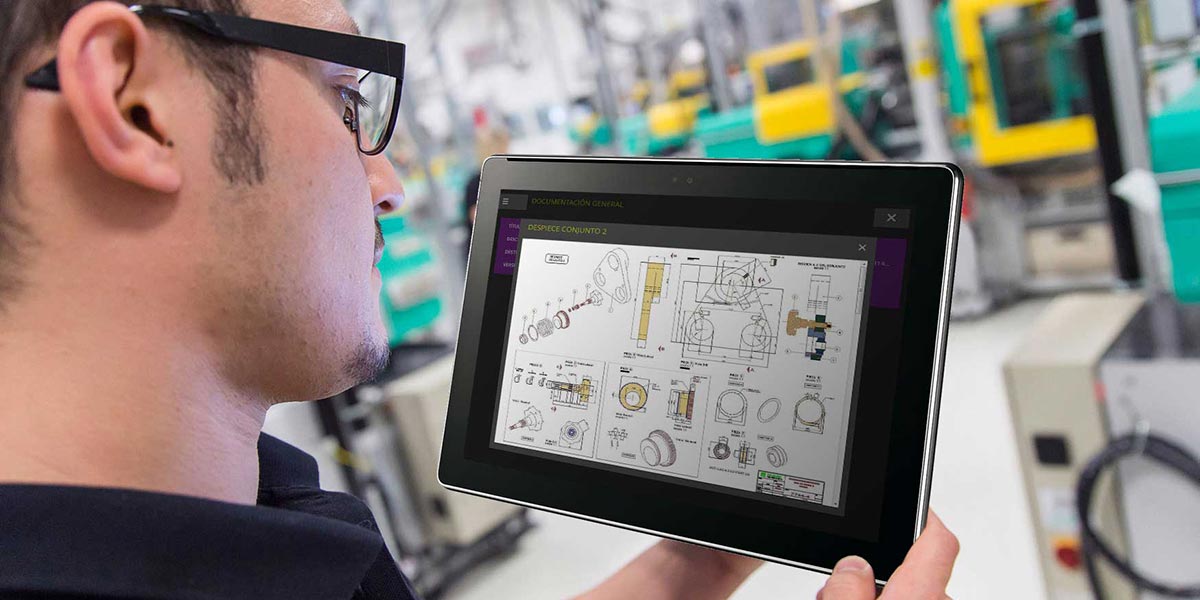
With the doeet Document Management system, the operator can consult, from the doeet HMI terminal in the factory plant, or any device, the documents required for the performance of his task. The documents can be distributed by operator, machine or production order and thanks to the marking it is possible to know if they have been read.
All documents are integrated and identified in a single system, which avoids the loss of documentation and time spent searching for them. Access control certifies the security of the information contained in the documents, and prevents third parties from accessing or making changes to them.
Link MES to your ERP system
The possibilities multiply

An MES system such as doeet functions as an indispensable extension or complement to the ERP system, but is oriented towards production control, planning and execution.
Thus, the ERP system communicates to the MES system what has to be manufactured and the MES is in charge of executing that order in detail, collecting in real-time details associated with it such as: changes in manufacturing orders, machine parameter adjustments, raw material availability, quality control, machine maintenance, operator assignment, traceability control,etc.
A MES System beyond SCADA
doeet considers all aspects of your production
SCADA (Supervisory Control and Data Acquisition) allows to control, execute and monitor industrial processes in the plant. A SCADA collects all the data generated during the production process (states, parameters, variables, speeds, etc.) using sensors and measuring devices in real-time and controls the production process automatically.
However, a SCADA does not aim to link all these data and display them in structured information, nor does it even allow for the visualisation of historical data collected on a manufacturing order.

SCADA systems are only the starting point for implementing a complete MES system such as doeet, which reaches its full potential when integrated with the company’s ERP system.
doeet MES collects all the necessary SCADA data to arrange them in a sequence and plot them in a specific order, with the events, changes or unforeseen events collected in the order. In this way, we can analyze how production has been going using the reports that doeet generates automatically.







